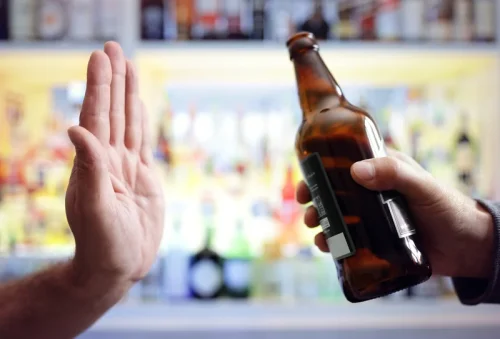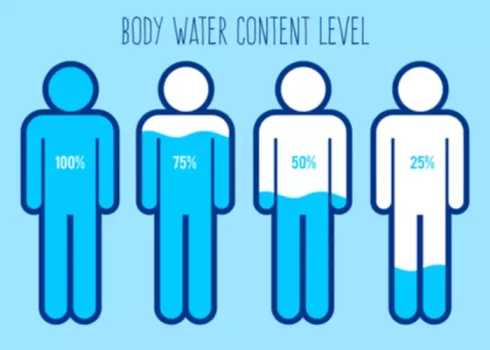
Rage can be triggered by many things, over words at a social gathering, being refused another drink, or even from perceived slights. Managing and understanding the triggers for this aggressive behavior is critical when dealing with an angry inebriated individual especially when attempting to diffuse the situation. Drinking too much causes interference in the communication pathways of the brain.
Various factors affect the potential for anger arousal with alcohol consumption.
It is only when they experience their own pain that they will feel a need to change. Often, in trying to « help, » well-meaning loved ones will actually do something that enables someone dependent alcoholic rage syndrome on alcohol to continue along their destructive paths. Make sure that you are not doing anything that bolsters their denial or prevents them from facing the natural consequences of their actions.
Explosive anger is never about you, but the other person.
Not to mention, recovering alcoholics that don’t manage anger are at higher risk of relapse. Intimate partner violence is of great concern when it comes to alcohol and anger. Violence can occur in marriages, long-term partnerships, and dating relationships. If you find yourself in a situation with someone who is angry while intoxicated, the first step is to assess your level of risk.

Is There A « Dry Drunk » in Your Life?
- Before you realize it, you can find yourself in a full-blown abusive relationship.
- People who are more focused on the present than the future are more likely to become angry and aggressive under the influence of alcohol, for example, Science Daily publishes.
- By seeking recovery for problems with alcohol and anger, you can work toward a more positive life.
- The study concluded that alcohol increased the odds of physical aggression in those men who had high trait anger and poor anger management skills.
Even though they speak about anger management in most Alcoholics Anonymous 12-step programs and in rehab, experiencing these emotions is different once you’re sober. Sometimes, little things like being unable to deal with or express a specific feeling can lead to an angry outburst. As a result, there’s a lot of trial and error throughout your recovery, including finding the best anger-management techniques for you. Alcoholism affects everyone in a household — not just the individual who drinks. Alcohol abuse increases the risk of physical and emotional violence, as well as substance abuse in other family members.
An increase in anger after trauma and the use of alcohol to cope with PTSD symptoms were stronger predictors of physically aggressive or violent acts than a lifetime diagnosis of PTSD without anger. Anger expression may also be confused with aggression or hostility, two consequences of drinking commonly cited in research. It’s common for alcohol and anger to be stereotypically lumped together, but many people labeled “angry” while drinking may actually be experiencing aggression or hostility.
Don’t Accept Unacceptable Behavior
If your partner shows intense feelings of anger and a lack of self-control when drinking, reach out for help. Domestic violence is a very dangerous potential result of alcohol abuse. A 2017 study showed that men under the influence of alcohol had higher rates of physical and sexual aggression. People with co-occurring disorders should receive specialized treatment.
Charitable Care & Financial Assistance
- It’s important to note that these symptoms can differ and represent variables in severity and duration depending on the individual and the extent of alcohol abuse.
- If you don’t know how to express anger, your frustrations can make you miserable or cause you to explode in an angry outburst.
- You might slowly begin to accept more and more unacceptable behavior.
- Alcoholic Rage Syndrome, also known as alcohol-induced aggression or alcoholic anger, is a distressing condition that plays a role in answering the question, why are alcoholics so mean?
- A substance abuse counselor, family therapist or spiritual advisor may also attend to provide an objective presence and keep the agenda on track.
People who are more focused on the present than the future are more likely to become angry and aggressive under the influence of alcohol, for example, Science Daily publishes. For years, our team at Gateway Foundation has provided comprehensive recovery programs for people going through alcohol misuse. Through various treatment options, we can help you get back to a life of normalcy.
The study concluded that alcohol increased the odds of physical aggression in those men who had high trait anger and poor anger management skills. It also noted that sexual aggression was higher with alcohol, even in men with low trait anger and reasonable anger management skills. Alcohol impairs cognitive function, which means it is more difficult to problem-solve, control anger, and make good decisions when drinking. Decreased cognitive function also means it’s more likely for you to misread a situation and overreact.

Is There a “Safe” Amount of Alcohol for the Brain?

